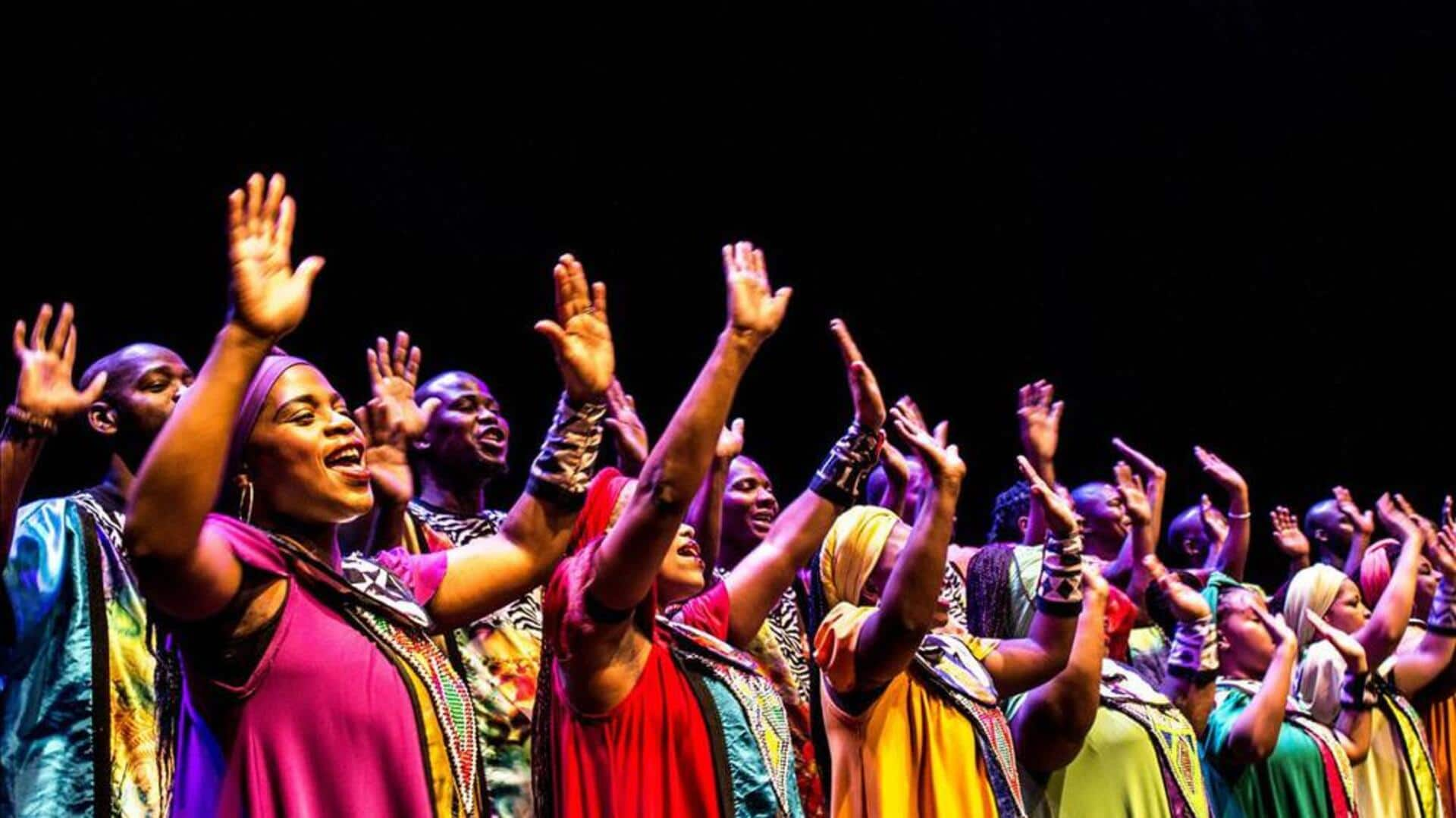
Exploring the radiant harmony of African choral music
What's the story
African choral music showcases a vibrant tradition rich in culture and emotion.
African choral music has enchanted global audiences with its pulsating rhythms, rich harmonies, and profound cultural resonance.
This article explores the historical foundations, stylistic elements, and modern significance of this dynamic art form.
By dissecting the heartbeat of this musical tradition, we aim to provide a deeper appreciation for the vibrant tapestry of sounds that is African choral music.
History
Historical roots and evolution
African choral music is a vibrant reflection of the continent's rich cultures and traditions.
Stemming from numerous ethnic groups across Africa, this unique art form has developed over centuries into a powerful medium of expression.
Traditional African choral music was not just music. It was a way to convey messages, honor celebrations, and pass down stories.
And, now, it's getting a modern touch, albeit the soul remains traditional.
Style
Stylistic features and techniques
The African choral music style is characterized by complex rhythms and call-and-response structures.
It utilizes polyphony, with multiple vocal lines harmonizing at the same time.
The addition of percussion instruments to accompany vocal performances further enriches the sound.
All these elements contribute to a unique musical texture that is both dynamic and profoundly emotional, reflecting the heartbeat of African musical culture.
Influence
Contemporary relevance and global influence
African choral music has experienced a significant rise in global popularity in recent years, impacting various musical genres and finding a place on the world's biggest stages.
Pioneering groups like Ladysmith Black Mambazo have played a key role in bringing this art form to global consciousness.
The profound human experiences conveyed in African choral works continue to resonate with people worldwide, attesting to its timeless appeal and cultural importance.
Education
Educational value and cultural preservation
African choral music serves as a cornerstone of cultural education, facilitating a deeper understanding of the continent's rich history, languages, social structures, and philosophical beliefs.
Schools and community groups utilize choral singing as a dynamic platform for teaching young people about their heritage.
It encourages a powerful sense of community and identity through shared performance, establishing it as a vital element of cultural education.
Exploration
Tips for exploring African choral music
If you want to explore African choral music in depth, here are some ways:
Start by listening to recordings of well-known ensembles.
Nothing beats the experience of attending live concerts. If you want to learn actively, consider attending workshops or joining choirs that focus on African music.
And, of course, studying academic books and articles on African choral music will give you a deeper understanding of its history and techniques.